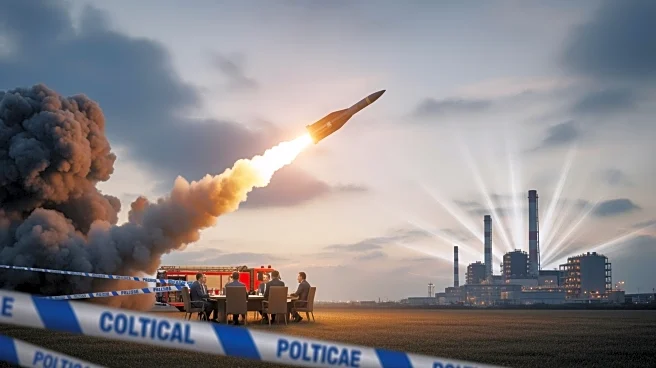What's Happening?
Ukraine has launched a missile and air strike on a chemical plant in Russia's Bryansk region, deemed crucial to Moscow's war industry. The attack involved Storm Shadow missiles, which reportedly penetrated Russian air defenses. Ukrainian President Zelensky
is currently in Sweden discussing defense export contracts. The strike is part of Ukraine's broader strategy to weaken Russia's military capabilities and disrupt its war efforts.
Why It's Important?
The strike on the chemical plant represents a significant escalation in Ukraine's efforts to target Russian infrastructure. By disrupting key industrial sites, Ukraine aims to diminish Russia's ability to sustain its military operations. The use of advanced missiles highlights Ukraine's growing military capabilities and international support. The attack could lead to increased tensions and potential retaliatory measures from Russia, impacting regional stability and international relations.
What's Next?
The situation remains volatile, with potential for further military engagements and diplomatic efforts to resolve the conflict. Russia may increase its defensive measures and seek to retaliate against Ukrainian targets. International stakeholders, including the EU and US, may continue to impose sanctions and support Ukraine's military efforts. The global community will likely monitor the situation closely, assessing the impact on regional stability and international relations.
Beyond the Headlines
The attacks raise ethical and legal questions about the use of military force and the targeting of civilian areas. The conflict's impact on civilian populations and infrastructure could lead to humanitarian concerns and calls for international intervention. Long-term implications may include shifts in geopolitical alliances and increased pressure on Russia to negotiate peace.
















